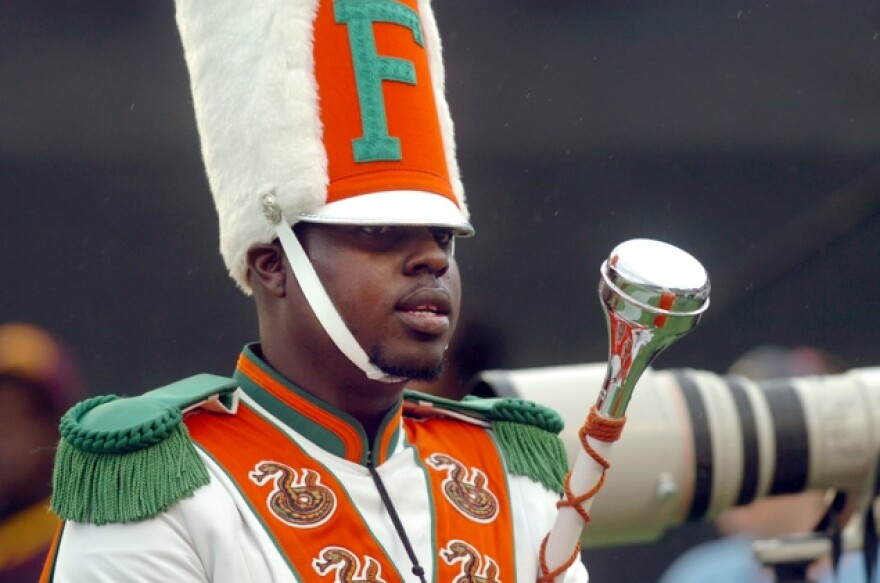The parents of Florida A&M University drum major Robert Champion, who died after being hazed on a bus last November, rejects claims that he wanted to be hazed. Prosecutors released more than 15 hundred pages of evidence against the 13 band members who have been charged.
In a press conference following the release of documents Wednesday, Pam Champion maintained that her son, Robert, was a staunch opponent to the hazing practices in the Marching 100. She tells a story about how he was so against violence, he turned down offers and bribes from coaches to play football.
“He would not play football because he didn’t see any point of somebody stepping all over him and banging and hitting him, so Robert was not a violent. He would never do any hazing and for someone to actually say he would, I’m saying no”
But the release of interviews with band members, paints a different picture. It shows Champion relented and agreed to follow those who have gone before him through the tradition of crossing. Head drum major, Jonathan Boyce said he went to help .
“When I got there, he was already to the back of the bus and the way the procedure goes, is that you just have to make it from the front of the bus to the back and touch the back wall.”
Boyce said he had to climb over the seats, in darkness, along the gauntlet of about fifteen band members beating down and hitting champion with everything from hands, to drum mallets and even a big orange traffic cone.
“I grab him, I grab him to try to keep everybody off of him and I grab him and I pull at him and I see people are kicking him so I stopped them from kicking him and I put my body around his body”
After the ordeal Champion vomited and had trouble breathing, he went unconscious and couldn’t be revived.
Percussionist Lizzette Sanchez said everyone initially thought Champion was just unconscious because they have a saying in the band; “If you snitch you die and if you die you die.” The word die is used loosely to describe being unconscious. Sanchez knows all too well because she was the first to cross "Bus C" that same night.
“When you were getting hit, how were you getting hit with, what?" asked the detective, "With Hands."-were you getting kicked?, were you getting hit with like sticks, noting else, judge hands. Punched or slapped? Just slapped. Where on your body? On my back.”
Sanchez went unconscious; she came too but was immobilized and couldn’t even drink water as she was left at the back of the bus. She was soon joined by drum major Lenauze Keon Hollis who was Champion’s roommate. He confirms Champion was strictly against the hazing tradition, but ultimately decided to cross "Bus C" with him.
“He made it through to the back and he was fine, cause I remember he asked me that he needed something to drink and I had a bottle of water and I gave it to him and that was it. I just got off the bus.”
Hollis survived his turn. An autopsy showed Champion later died of hemorrhagic shock caused by blunt force trauma.
“The only reason I think he died is because he didn’t have any time to breathe or whatever," Sancheze told detectives. "'because I know when I finish, I almost had a panic attack.”
Hollis said he was telling Champion to follow his instincts.
“I was like man, you don’t have to do it. Why did you do?" the detective asked, "Honeslty, I did it for the same reason that everybody else do it. Just to get the respect, just really to get the respect of people just get the acceptance.”
Thirteen band members have been charged with causing Champion's death on Nov. 19. Eleven defendants face a count of third-degree felony hazing, and two others have been charged with misdemeanors. The band director has resigned and the band is to remain on suspension at least until next year.

